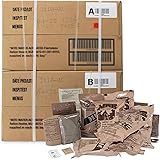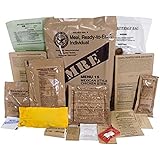Understanding the Importance of Emergency Planning
The Reality of Uncertainty
Life can throw curveballs at any moment. From natural disasters to economic downturns, the world has shown us that being unprepared isn’t an option. I’ve personally seen people struggle due to a lack of preparedness. The stress and chaos that ensue when emergencies strike are overwhelming. By having a plan in place, you’re essentially buying peace of mind.
When I first moved to a region prone to wildfires, I witnessed firsthand how having a solid emergency plan can make a huge difference. My neighbors who had well-thought-out plans were calm and collected, while those without were scrambling last minute. It was a clear wake-up call for me on the importance of planning.
It’s not just about having a plan for extreme scenarios. Think about more mundane but equally disruptive events like job loss or significant health issues. These situations can wreak havoc on your life, but having a preparedness mindset can help you navigate through them more smoothly.
Protecting Your Loved Ones
My family is my world. The thought of them being in danger or suffering unnecessarily because we failed to plan is unbearable. By mapping out an emergency strategy, I’m not just protecting myself, but ensuring their safety and security too.
One of the best investments you can make is in quality insurance, both health and home. It’s part of the bigger picture of emergency preparedness. Knowing that if something goes wrong you have a safety net can be incredibly reassuring. Even small steps like teaching family members emergency response techniques can go a long way.
Communication is key. In my household, we regularly review and practice our emergency plans. It may seem like overkill, but when you’re under pressure, it’s easy to forget even the simplest steps. Having routine drills ensures everyone knows exactly what to do.
Financial Security
Financial stability is often overlooked in emergency planning, but it’s crucial. Stockpiling savings and having an emergency fund can be a lifeline when unexpected expenses arise. I always advise folks to have at least three to six months’ worth of expenses saved up.
In today’s unpredictable economic climate, job security can’t always be counted on. That’s why diversifying your skills and staying adaptable is vital. The more versatile you are, the better prepared you’ll be to pivot and find new opportunities.
== > What if ... Get a FREE Subscription to PREPARE
Reviewing and updating your financial plans regularly ensures you’re always in the best position to handle whatever comes your way. Trust me, having a solid financial backup plan will save you from a lot of headaches in hard times.
Identifying Potential Long-term Emergencies
Natural Disasters
Depending on where you live, natural disasters like hurricanes, earthquakes, or floods can be a significant concern. Understanding the most likely events in your area is the first step in targeted planning.
In my hometown, flooding is a frequent problem. We invested in proper drainage systems and made sure our house is equipped to handle heavy rain. We’ve also prepared an emergency grab-and-go kit with essentials like food, water, and medical supplies.
Keeping abreast of weather alerts and evacuating when necessary can save lives. Trust local authorities and plan your evacuation routes in advance. Knowing where to go and what to do can minimize the panic when disaster strikes.
Economic Downturns
Economic crises can happen anywhere, anytime. I experienced the 2008 financial crisis, and the ripple effects were felt everywhere. Many of my friends and neighbors faced significant challenges. That experience taught me the importance of financial readiness.
Diversify your investments and don’t put all your eggs in one basket. When markets shift, having a diversified portfolio can protect you from total loss. I always keep an eye on economic trends and adjust my investments accordingly.
Moreover, developing multiple income streams is vital. In our gig economy, relying on one job can be risky. Freelance work, side businesses, or even passive income streams can provide a financial buffer during tough times.
Health Crises
The COVID-19 pandemic was a stark reminder of how quickly health situations can escalate. Health emergencies can disrupt not only your personal life but the world at large.
Maintaining good health is a preventive measure. I make it a point to eat well, exercise regularly, and go for routine medical checkups. It’s a simple yet effective way to be ready for health-related emergencies.
Stocking up on essential medications and knowing how to access healthcare quickly is crucial. I also recommend having health insurance to cover unexpected medical expenses. Being prepared on the health front ensures you can handle emergencies without added stress.
Creating a Comprehensive Emergency Plan
Assessing Risks and Resources
The first step is to assess the risks specific to your location and lifestyle. For instance, if you live near a coast, hurricanes could be a concern. In an urban area, consider economic and security risks. Knowing what’s most likely to occur helps prioritize your preparation efforts.
Mapping out resources is equally important. Identify local shelters, hospitals, and evacuation routes. Knowing your community resources can make evacuation plans more effective. Neighbors can also be a valuable resource, so get to know them and work together in planning.
My family and I made a detailed inventory of our home, noting down emergency contacts and important documents. This preparation helps streamline our response during emergencies and minimizes confusion.
Developing Action Plans
An effective emergency plan isn’t just a list; it’s a well-thought-out strategy. Outline specific steps for various scenarios. I’ve found that having clear instructions helps reduce anxiety and ensures everyone knows their role.
Communication is paramount. Our family set up a phone tree to ensure we can quickly reach each other. We also agreed on meetup points in case we get separated. This way, we know exactly where to find each other.
Another essential part of our plan is the “go-bag” – a bag packed with essentials like medicines, important documents, cash, and clothing. Keeping it ready and easily accessible can make evacuation quick and efficient.
Practice Makes Perfect
Once your plan is in place, practice it regularly. It’s not enough to have a plan on paper; you need to rehearse it. We hold family drills a few times a year, mimicking different emergency scenarios to ensure everyone knows what to do.
Review your plan every six months to keep it current. We’ve found that testing our plans helps identify any gaps or new needs. For example, as our kids have grown, we’ve adjusted our plan to account for their changing needs and abilities.
Practicing also builds your mental resilience. When you’ve run through an emergency scenario several times, you’re less likely to panic in a real situation. You know you’ve got it covered, and that makes all the difference.
Regularly Reviewing and Updating Your Plan
Staying Informed
Keeping up with new information is critical. Subscribing to local news alerts and following government websites ensures you receive timely updates about potential threats and emergencies.
In our home, we set reminders to check and update our emergency kits and plans every six months. This ensures that we’re always prepared and that our supplies haven’t expired. It’s a simple habit, but it keeps us ready.
This routine upkeep also helps in making adjustments based on lessons learned from recent events. Each incident gives us new insights, allowing us to fine-tune our plans for better effectiveness.
Learning from Experiences
Your past experiences are valuable lessons. After each significant event, take time to evaluate what worked well and what didn’t. I remember when we went through a regional blackout; it highlighted the need for a better communication strategy.
Talk to others who have gone through similar experiences. Learning from their stories can offer new perspectives and solutions you hadn’t considered. I often find great tips from community forums and local groups.
Document these lessons and incorporate them into your plans. This continuous learning and adaptation make your preparation efforts increasingly robust.
Involving the Community
Preparedness isn’t just an individual effort; it’s a communal one. Engage with your neighbors and local community groups. Pooling resources and knowledge can make everyone safer.
We’ve organized neighborhood meetings to discuss emergency plans and shared resources like generators and emergency supplies. It’s brought us closer and strengthened our collective resilience.
Building a network of support ensures that help is never far away during an emergency. When everyone is prepared and aware, the community can navigate through crises more effectively and with less panic.
Frequently Asked Questions
1. When is the best time to start planning for long-term emergencies?
The best time to start planning is now. Emergencies are unpredictable, and the earlier you prepare, the better equipped you’ll be to handle them.
2. How often should I review my emergency plan?
It’s advisable to review and update your emergency plan every six months. Make sure your supplies are current and your plan reflects any changes in your circumstances.
3. What should be included in an emergency “go-bag”?
Your “go-bag” should include essentials like medications, important documents, cash, clothing, food, water, and first-aid supplies. Tailor it to suit your family’s specific needs.
4. How can I involve my family in emergency planning?
Discuss the importance of preparedness with your family, outline clear roles for everyone, and practice your plans regularly together. Make it a fun and engaging activity to ensure everyone participates.






